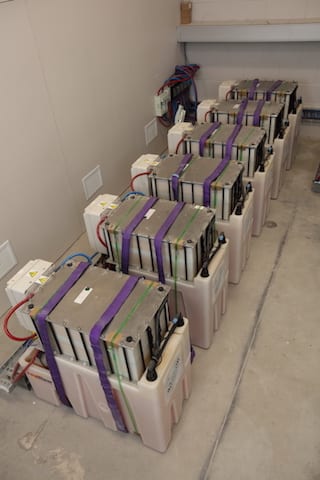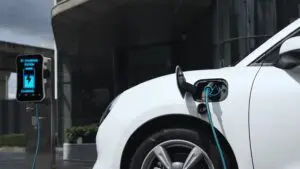The federal government has again shown its support for battery storage technology as a key player in Australia’s future energy mix, with a strong presence at an Energy Storage Summit in Canberra on Wednesday.
The Federal Parliament Energy Storage Summit, which was to focus on the support and promotion of local research and innovation in battery storage in Australia, kicked off with a keynote address by federal resources minister, Josh Frydenberg, and was attended by some of the more conservative members of the Coalition, including former deputy PM Warren Truss and WA Liberal MP Dennis Jensen.
Former Deputy PM @warrentrussmp attends Energy Storage Summit with @EnergyStorageCL members. #energystoragesummitpic.twitter.com/7TG0e5CgY1
— EnergyStorageCouncil (@EnergyStorageCL) March 15, 2016
The ESC’s John Grimes told RenewEconomy that Frydenberg’s “off the cuff” speech was refreshingly supportive and positive about the role of battery storage in the Australian energy landscape, and stressed the importance of a bipartisan approach to policy to support its roll-out.
Grimes said Frydenberg was also supportive of the fact that battery storage would empower individuals and consumers, in particular, in the energy market, allowing them to maximise the benefits of their rooftop solar generation.
Frydenberg’s upbeat comments gel with those made by federal environment minister Greg Hunt late last year, in an interview with ABC TV’s Lateline.
In the interview, Hunt said it was inevitable that significant numbers of consumers would use battery storage to leave the grid in coming years, and repeated his vow to help accelerate the deployment of battery technology.
“Increasingly we will see the adoption of battery storage, which is the key thing to enable people to go off the grid. This is clearly the future,” Hunt said.
“The debate is how long it takes and the task for government is to help bring that forward.”
Whether or not Hunt acts on this observation, battery storage is rapidly getting more and more accessible to consumers. Among the battery storage and energy industry representatives at the Summit – which ranged from battery makers Redflow, Redback and Allgrid Energy to a representative from Queensland utility Ergon Energy – the talk focused on the changing economy for residential battery systems, which were seeing pay-back periods shrink to as little as 5 years in some cases.
At the network level, Grimes said there was still “a bit of a hang up” about who would pay for the grid, as more and more rooftop solar plus battery systems took households behind the meter.
And on the subject of large-scale energy storage, the message was that networks were still struggling to find a way to monetise these investments.










